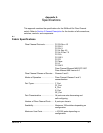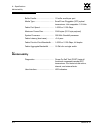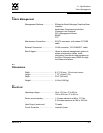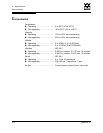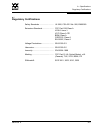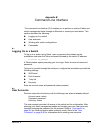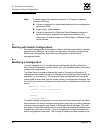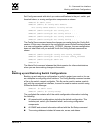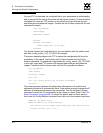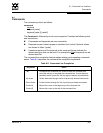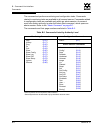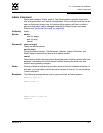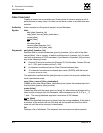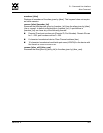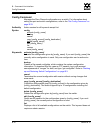
B – Command Line Interface
Working with Switch Configurations
59042-06 A B-3
0
Set Config commands with which you make modifications to the port, switch, port
threshold alarm, or zoning configuration components as shown:
SANbox2 #> admin start
SANbox2 (admin) #> config edit default
The config named default is being edited.
SANbox2 (admin-config)#> set config port . . .
SANbox2 (admin-config)#> set config switch . . .
SANbox2 (admin-config)#> set config threshold . . .
SANbox2 (admin-config)#> set config zoning . . .
The Config Save command saves the changes you made during the Config Edit
session. In this case, changes to the configuration named Default are being saved
to a new configuration named config_10132003. However, the new configuration
does not take effect until you activate it with the Config Activate command as
shown:
SANbox2 (admin-config)#> config save config_10132003
SANbox2 (admin-config)#> config activate config_10132003
SANbox2 (admin-config)#> admin end
SANbox2 #>
The Admin End command releases the Admin session for other administrators
when you are done making changes to the switch.
B.3.2
Backing up and Restoring Switch Configurations
Backing up and restoring a configuration is useful to protect your work or for use
as a template in configuring other switches. The Config Backup command creates
a file on the switch, named configdata. This file can be used to restore a switch
only with the command line interface; it cannot be used to restore a switch using
SANsurfer Switch Manager.
SANbox2 #> admin start
SANbox2 (admin) #> config backup
The configdata file contains all of the switch configuration information including
the following:
All named switch configurations including the default configuration. This
includes port, switch, port threshold alarm, and zoning configuration
components.
All SNMP and network information defined with the Set Setup command.
The zoning database included all zone sets, zones, and aliases



